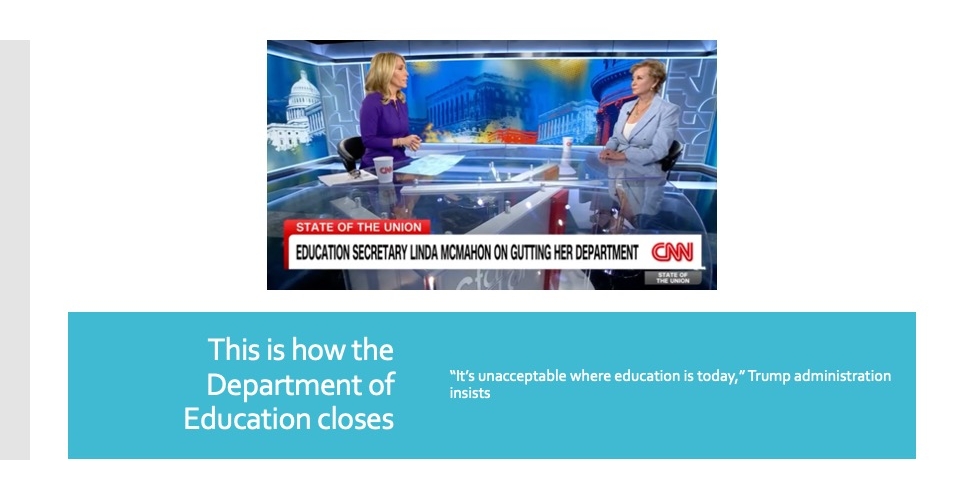2024 has some exciting things in store for K12 education, especially when it comes to technology. Next week, for instance, thousands of educators, district leaders and technology professionals will be attending the Future of Education Technology Conference to immerse themselves in the latest innovations and trends impacting edtech. From artificial intelligence to virtual learning, there’s no doubt that technology will continue to impact student achievement in a meaningful way. But what exactly should educators be on the lookout for?
District Administration had the opportunity to connect with Sari Factor, vice chairman and chief strategy officer at Imagine Learning, to hear her predictions for edtech in 2024.
2023 recap
Factor notes that 2023 was a big year for education technology, especially as it pertained to personalized learning. Closing learning gaps has been a top priority among district leaders since the pandemic and technology has been a supportive tool in this effort. However, leaders have put less focus on the technology itself and more on how it benefits the student.
“This year [2023], we saw a greater a greater focus on the ‘ed’—that is, education to propel student outcomes—and less on the ‘tech,'” she says. “The term ‘edtech’ is an anachronism, with teachers now employing technology-based programs regularly as a vital classroom tool.”
Chronic absenteeism is another issue that arose—or was exacerbated—during the pandemic. The rapid expansion of technology that resulted from COVID offers leaders more options for students to continue learning no matter where they are whether it’s a virtual, blended or competency-based learning model. Factor says she saw these successful practices play out in 2023, including more ways to keep students engaged with the curriculum.
“We’ve seen districts explore gamification and immersive learning projects to keep students engaged and more excited to learn and participate,” she says.
“Amid an ongoing teacher shortage, the growth of virtual learning has opened opportunity and access, allowing districts to fill teaching vacancies in upper-level math and sciences, world languages, career and technical education and special education—all of which have seen heightened demand in recent years.
Generative AI, too, became a major disruptor to K12, specifically in regard to how it might impact academic integrity. Factor says the initial concern surrounding this technology is starting to wear off.
“The advent of generative AI initially generated concerns about plagiarism, though, by Sept. 2023, we found that 33% of teachers reported using generative AI in their classrooms for tasks, such as crafting assessments, developing lesson plans, creating instructional content and grading,” she explains.
The 2024 roadmap
What’s in store for edtech this year? What should educators be excited about, and what challenges persist? According to Factor, AI is the answer to each of these questions.
“AI will transform how teachers teach and students learn,” she says. “Educators should be excited to use the technology to alleviate the burden of repetitive tasks and to identify trends in student data, enabling them to focus their efforts, and giving teachers more time to interact with their students. I’m hopeful that teachers’ job satisfaction will increase and more will stay in the profession longer.”
It’ll also have a profound impact on supporting student achievement. She says over time, AI—paired with digital curricula and human interaction—will allow students to tap into their potential with personalized lesson plans that cater to their needs and interests, thus, producing better results.
“For AI to be developed effectively, however, it must leverage a foundation of high-quality digital curricula to build trust with educators and school leaders, who must first believe in this technology for it to have a meaningful impact,” she argues.
More from DA: Want students to be more engaged? Don’t ban cellphones!
Furthermore, students must be taught why it’s more important to ask the right question than it is to get the right answer. When it comes to AI, 21st-century skills like the four C’s—communication, collaboration, creativity and critical thinking—will “become more prominent and important in the age of artificial intelligence,” she says.
“With ever more schools equipping every student with a device, new digital-first solutions are becoming available. As technology-enabled solutions become more deeply ingrained in the K12 landscape, we must break down the barriers to access in rural and underfunded school districts, ensuring digital equity.”
In the meantime, she believes district leaders and educators need support from federal and state decision-makers who are in charge of enacting policies to govern AI use. Without it, educators will lack the comfort to invite such technology into their classrooms.
“Districts are willing to integrate AI into their classrooms, but lack the proper resources and training needed to do so successfully,” she says. “Collaboration among policymakers, district leaders and education solution providers will play a critical role in addressing concerns with AI use in classrooms.”



